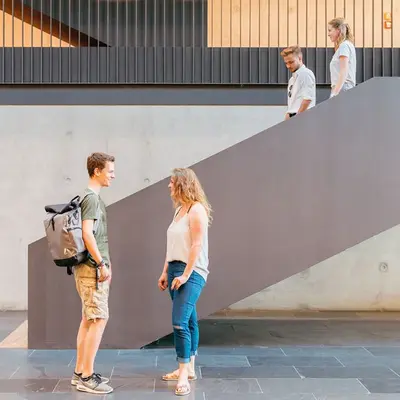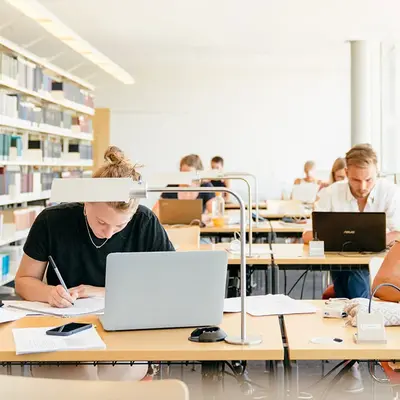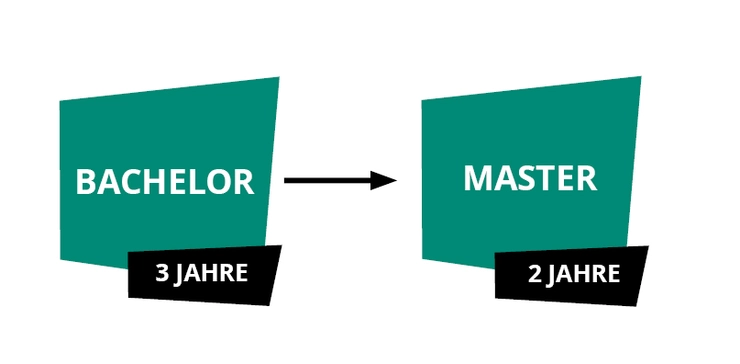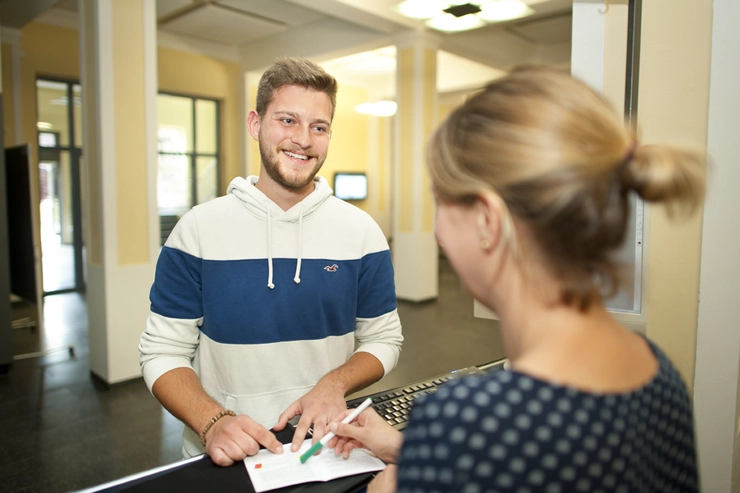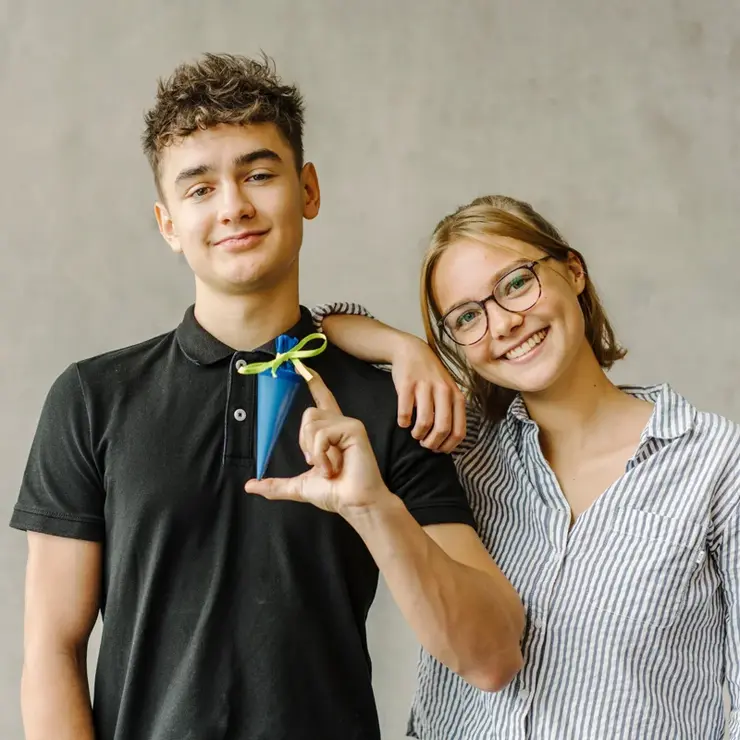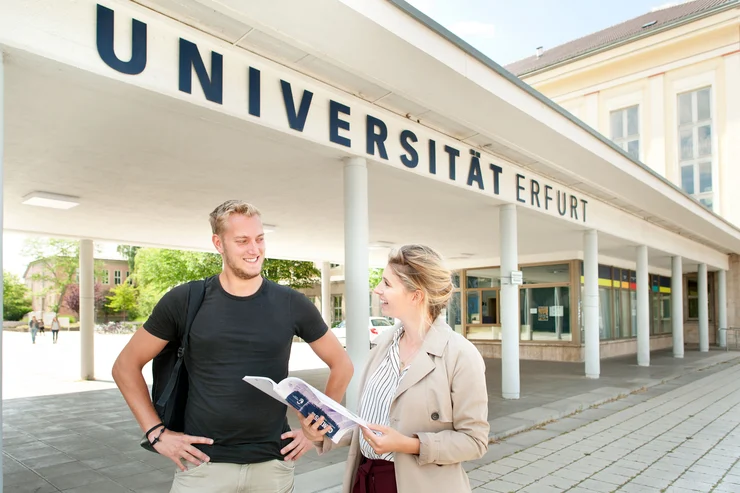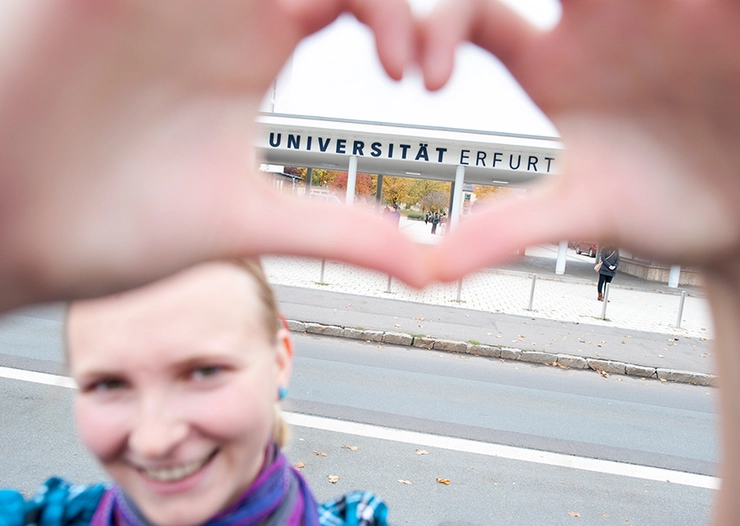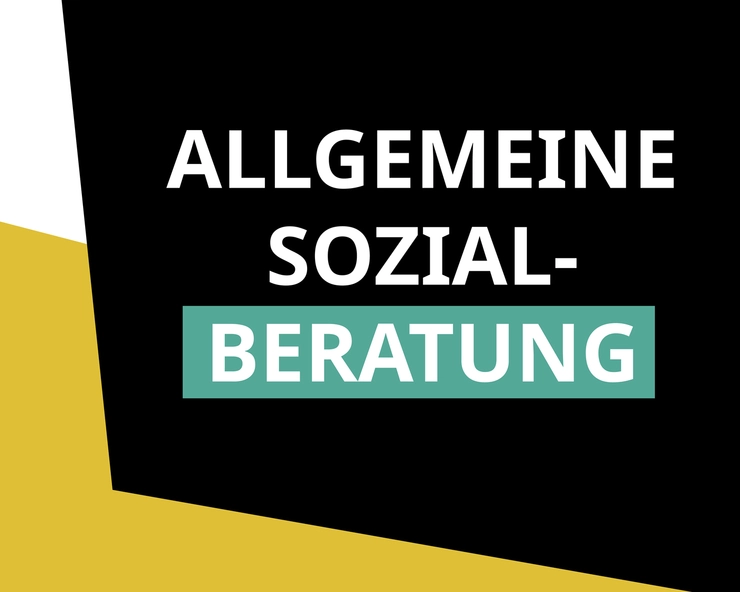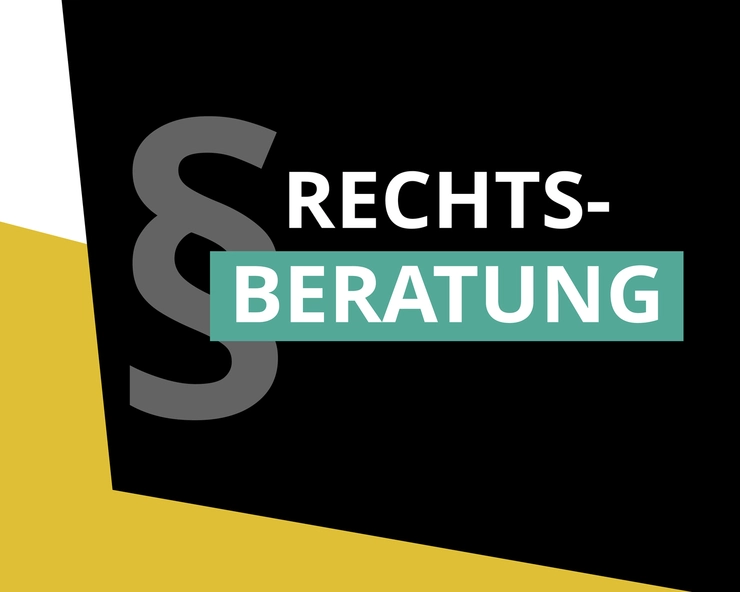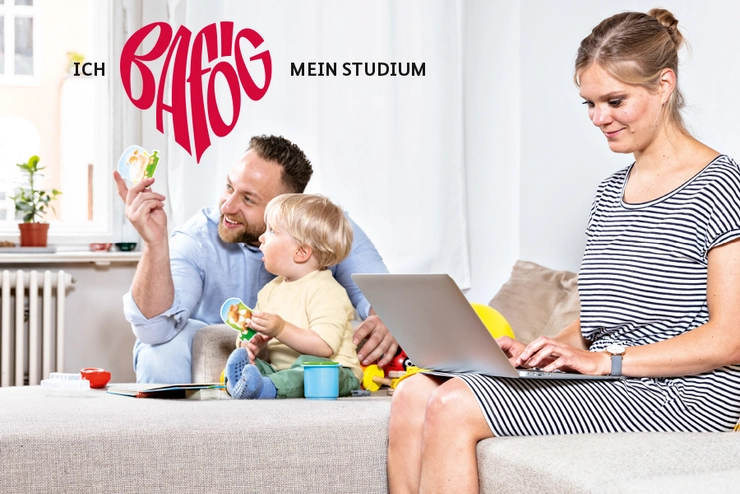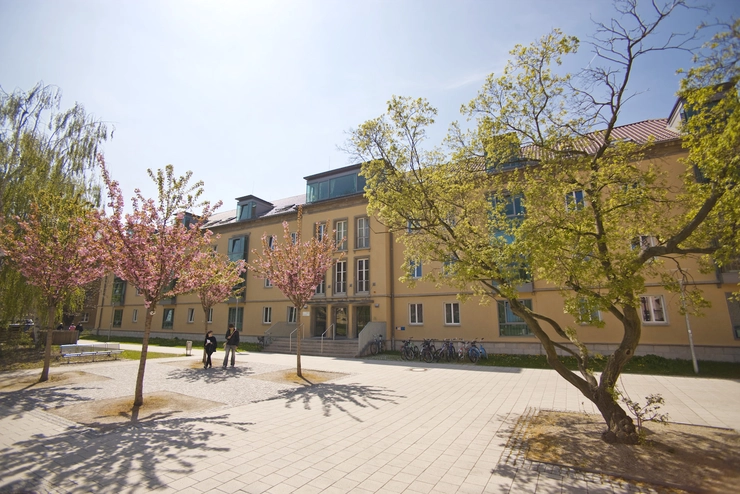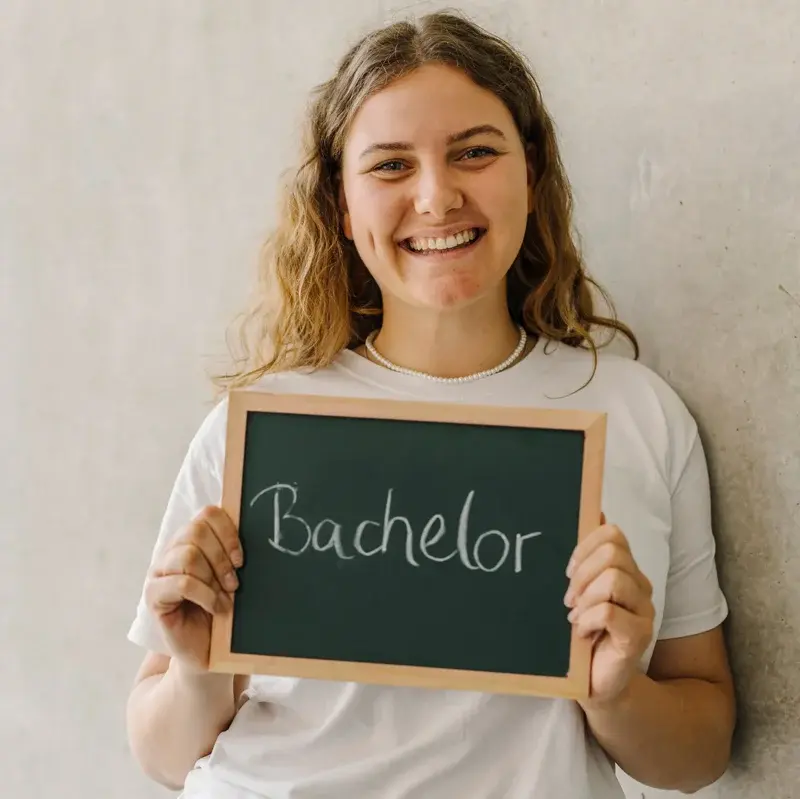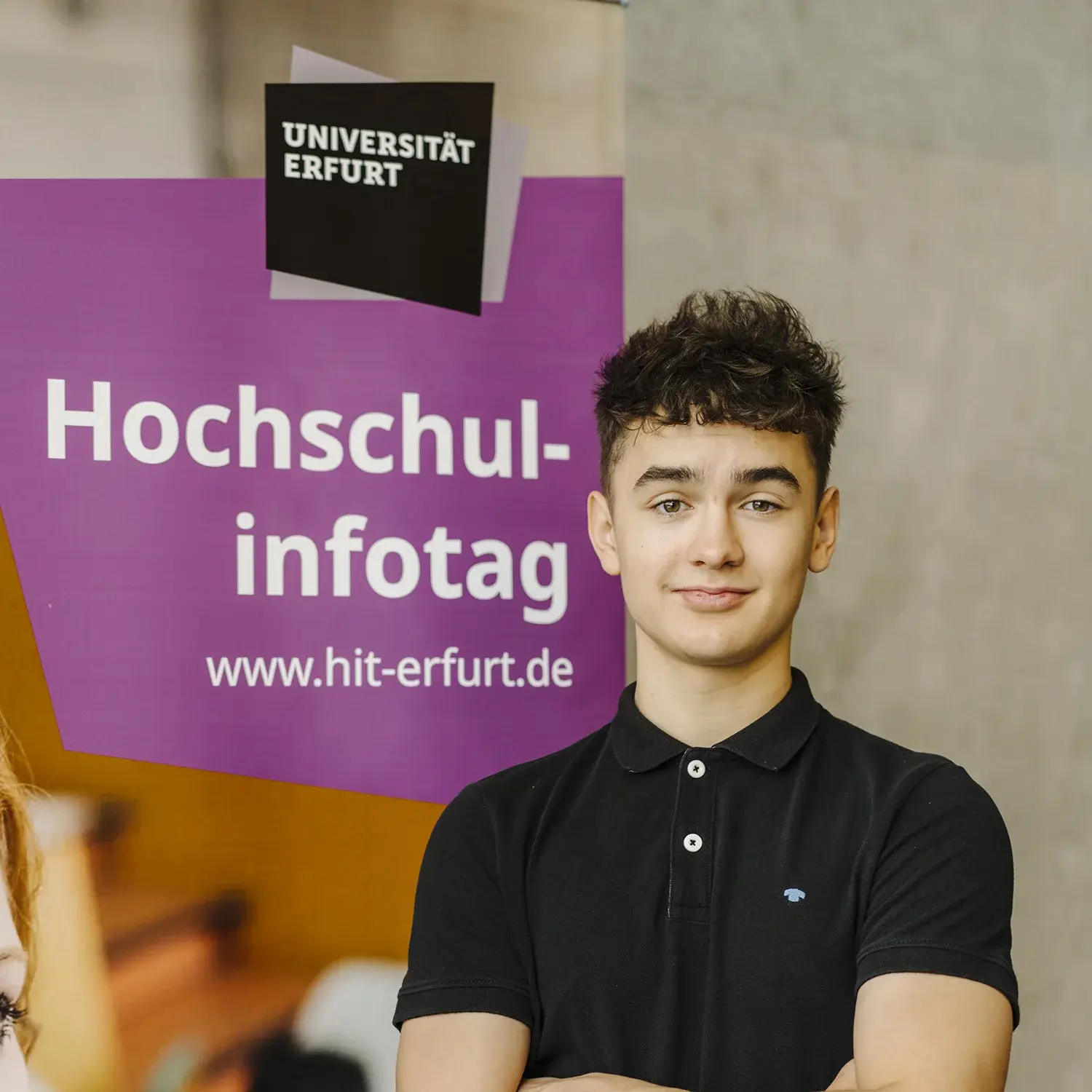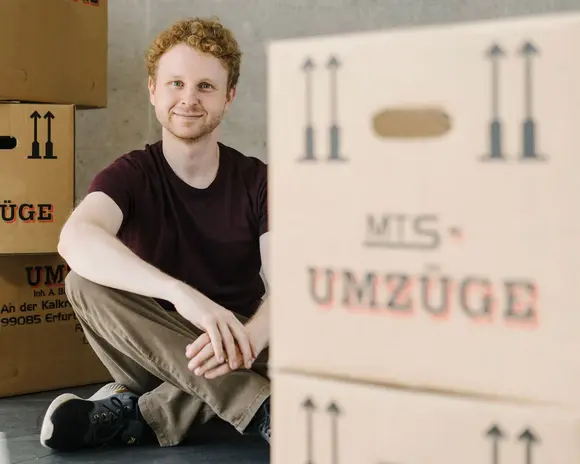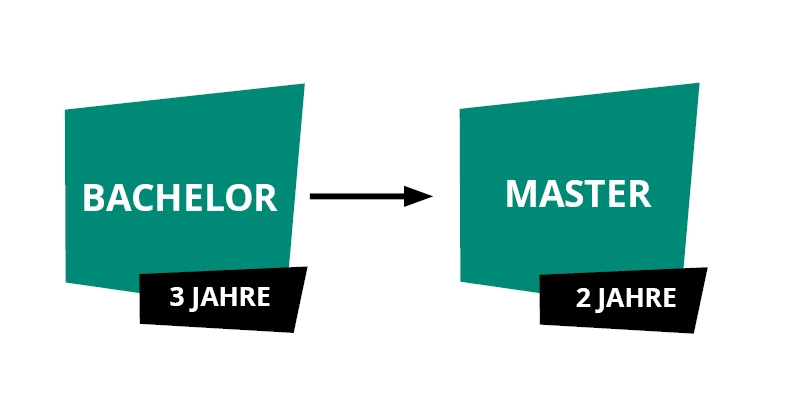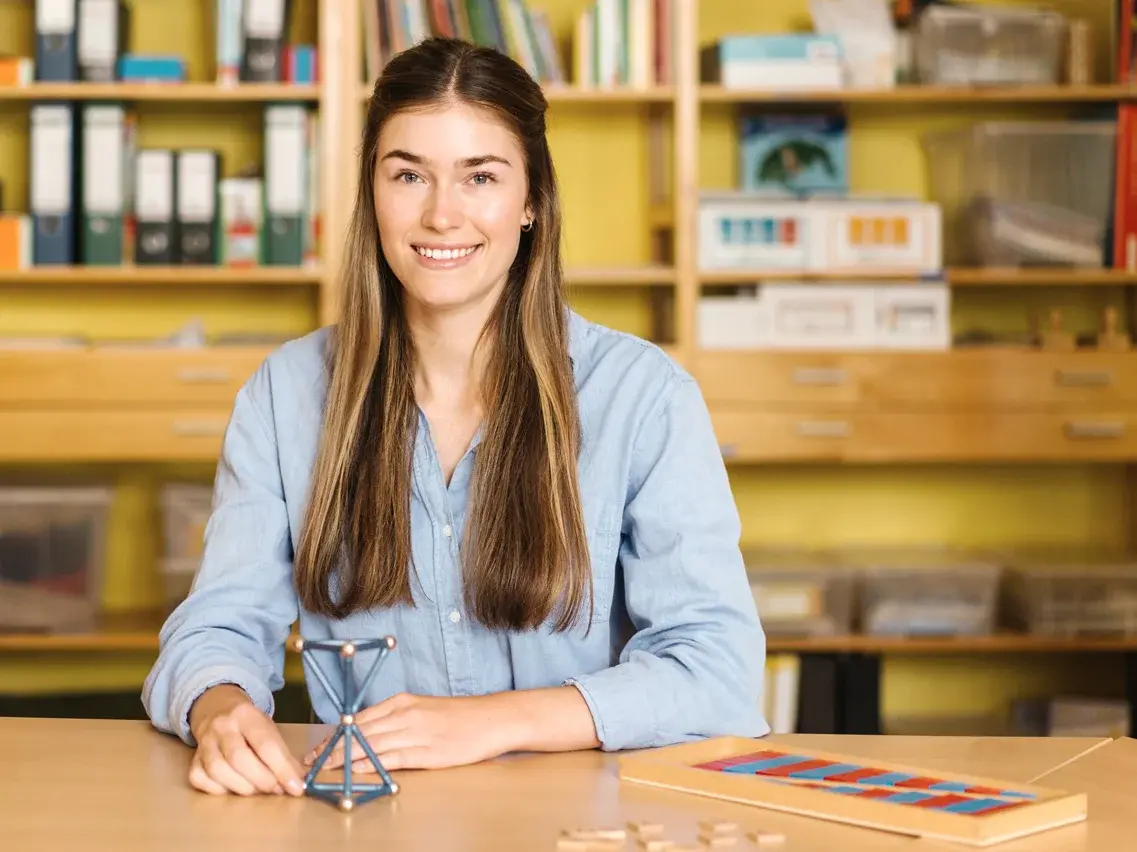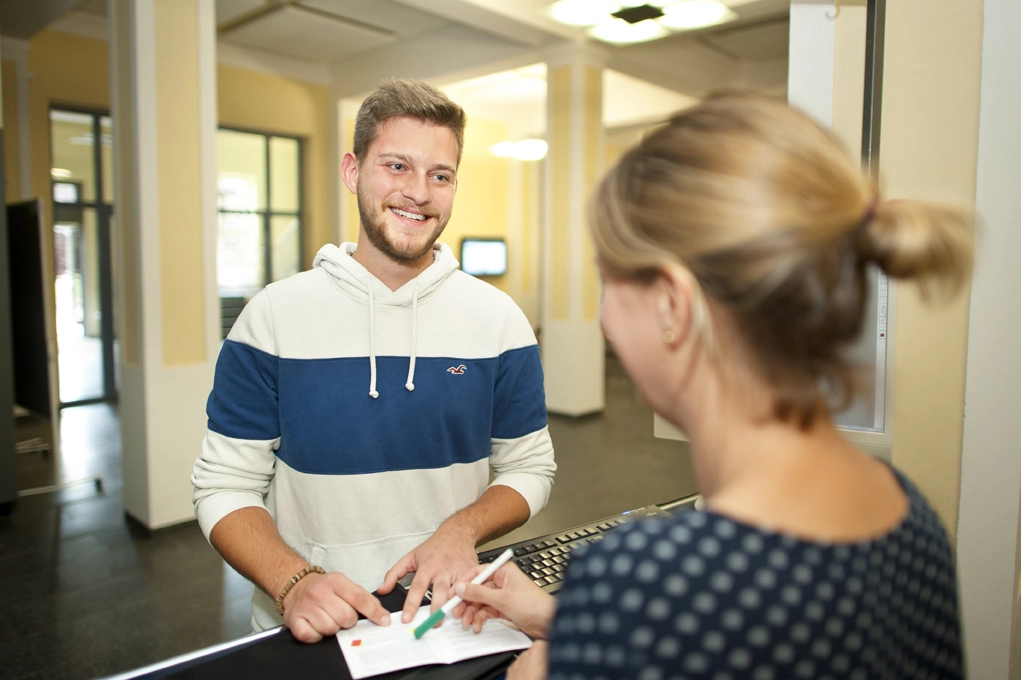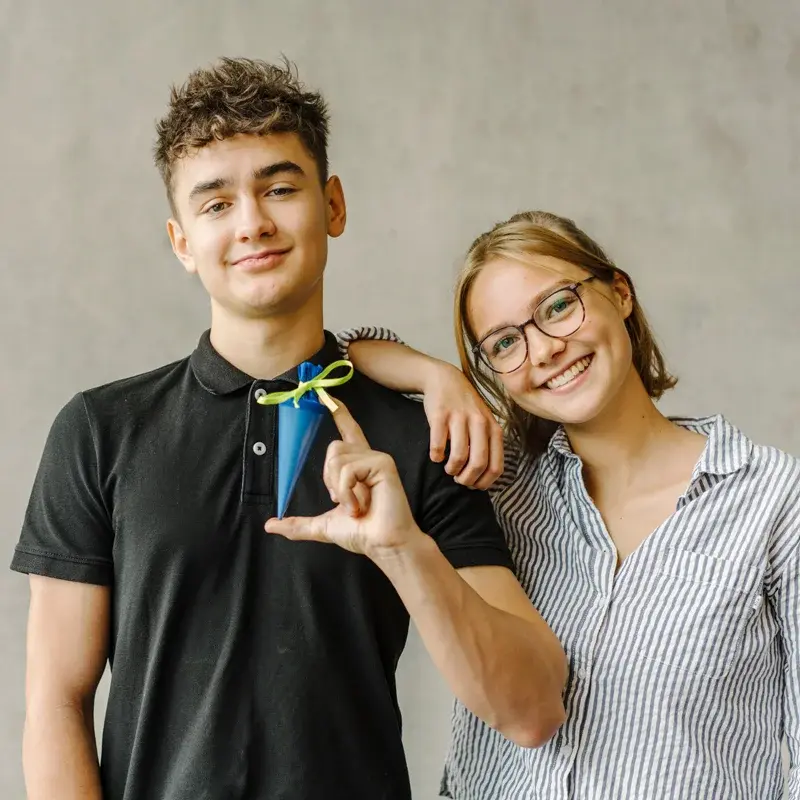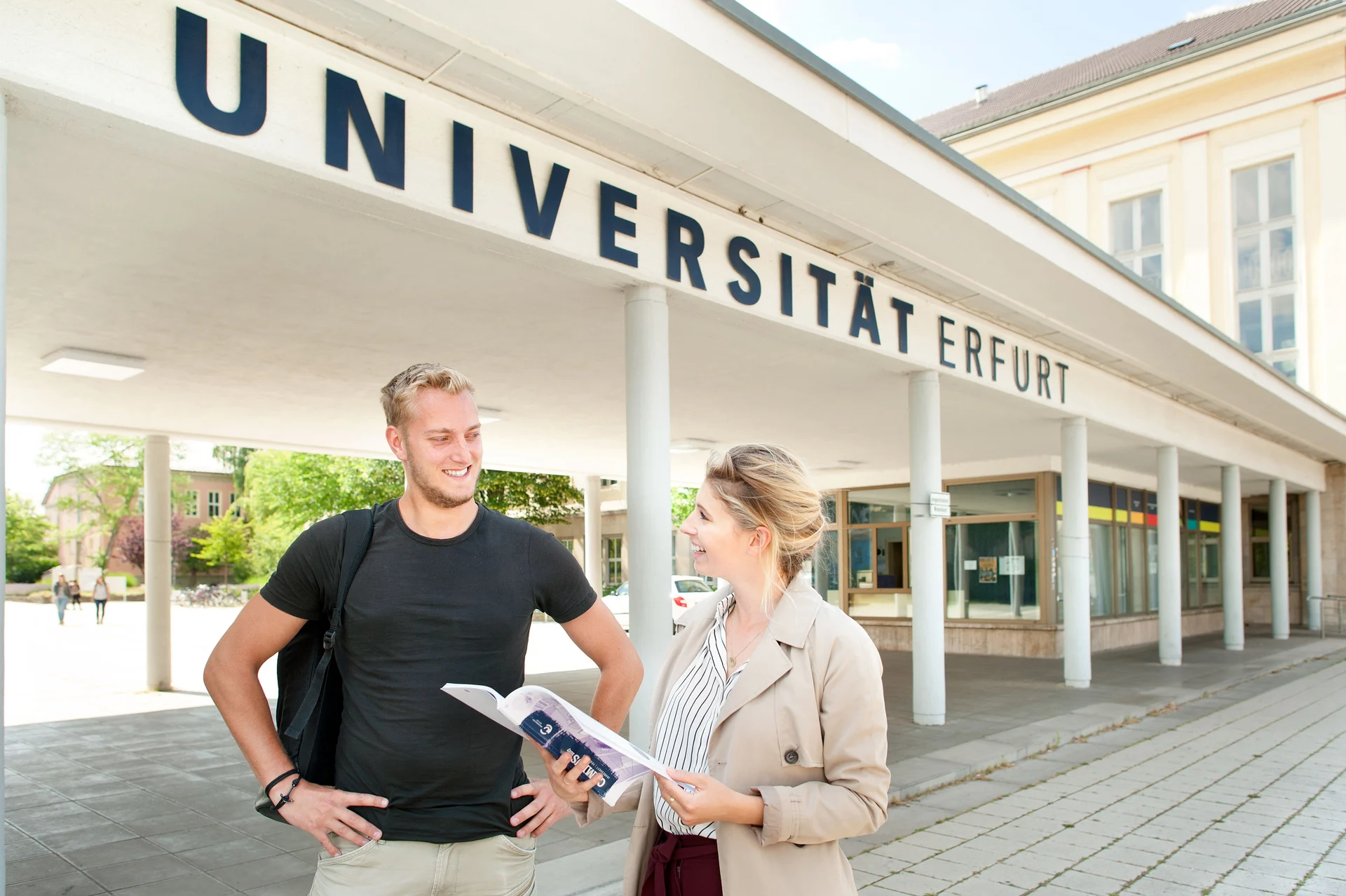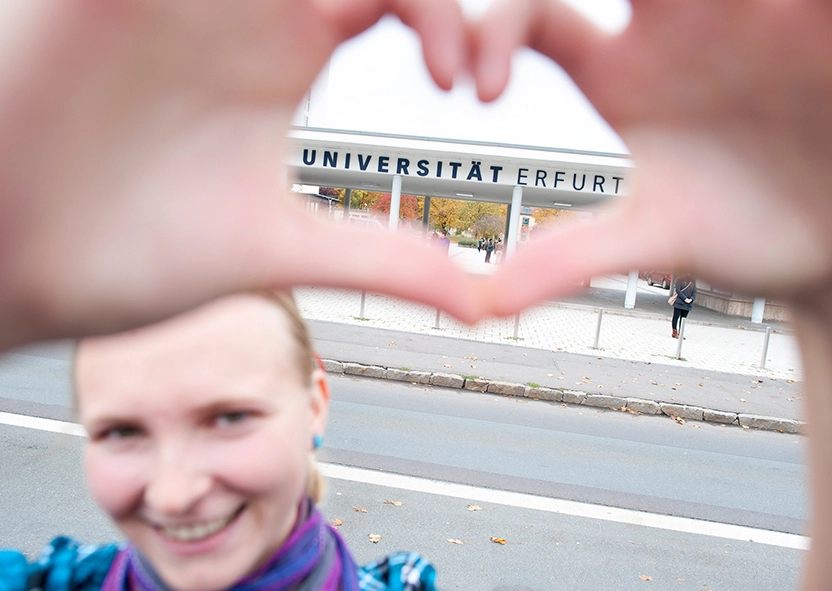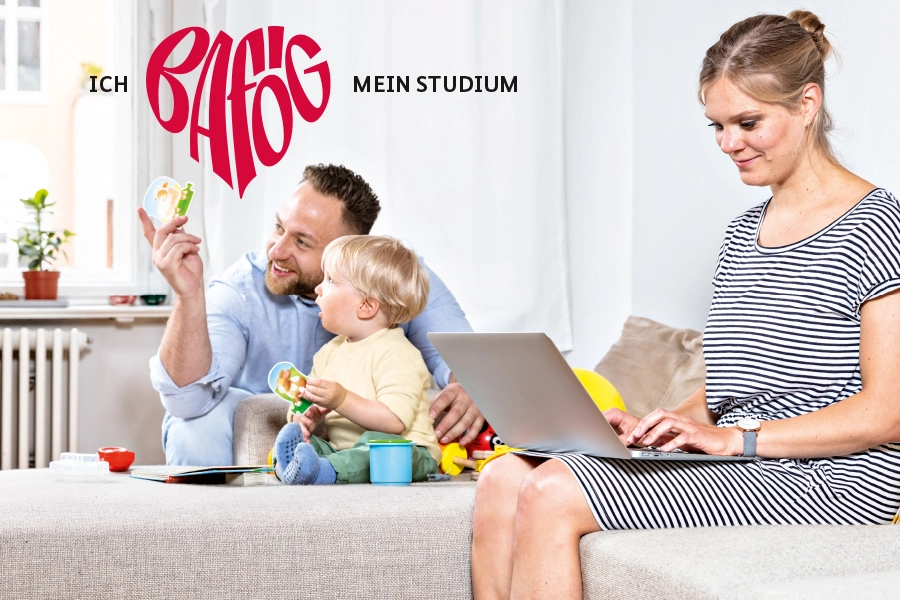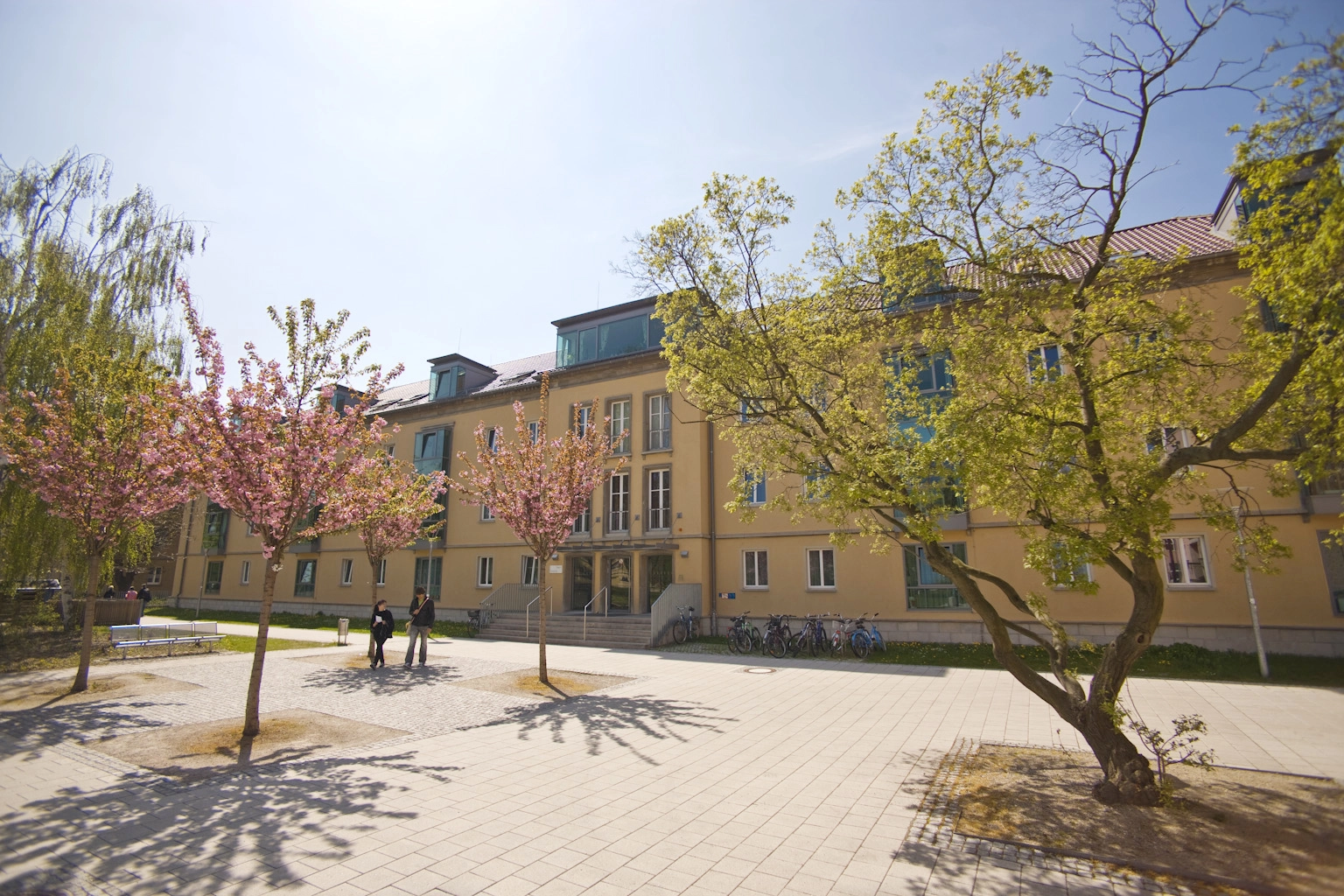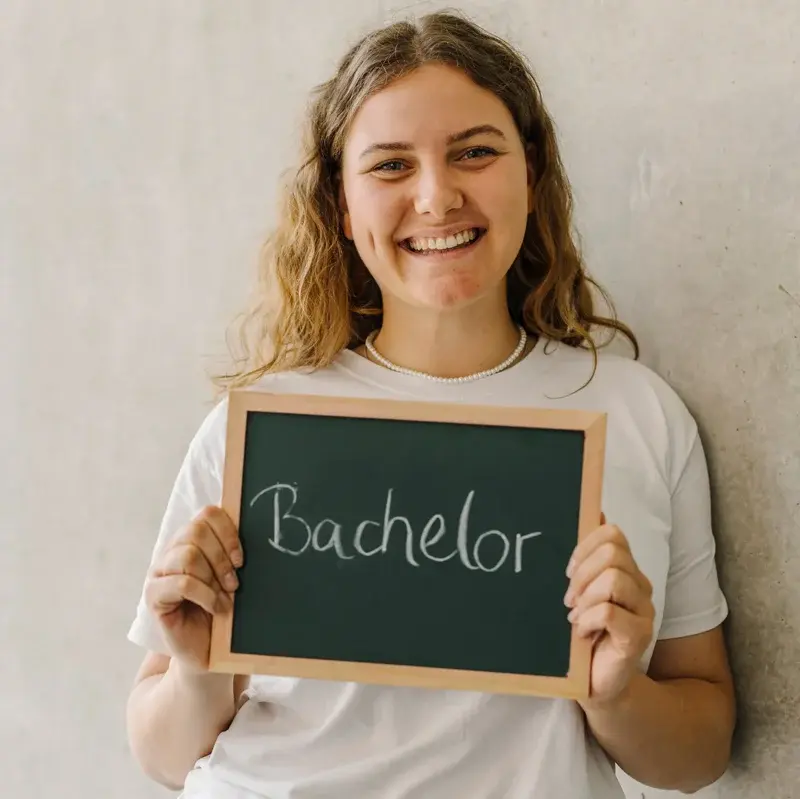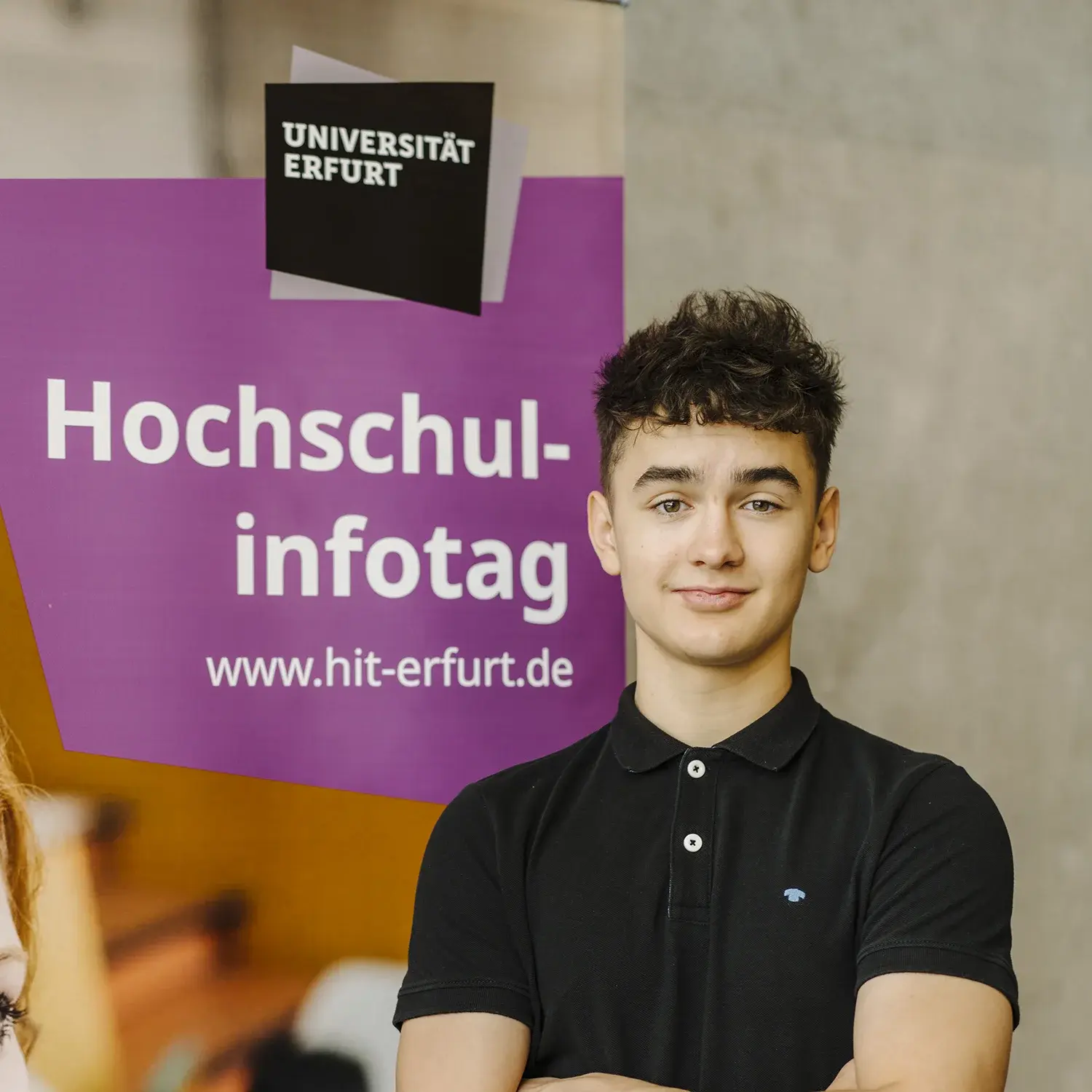In 5 steps to study
Which degree programme suits me? Which subjects can I combine? When do I have to apply? How do I enrol? The path may seem a little tricky at first. We will help you with the most important steps towards studying and provide you with important contacts.
The path to a degree programme depends on the respective admissions restriction, i.e. with or without numerus clausus (NC), of your subjects. Accordingly, the deadlines for your student applicant differ. You do not need to apply for subjects with open admissions; you can enrol directly (see step 4).
First information about the study programme
Study teaching profession at the University of Erfurt
At the University of Erfurt you will study for the teaching profession:
- Primary schools,
- Secondary schools,
- Vocational schools or
- Special Needs Pedagogy
trained. Teacher training takes place in the Bachelor's-Master's degree system (first the Bachelor's degree and then the Master's degree). The degree is equivalent to the 1st state examination taken at other universities. The study programme is followed by the preparatory service, which concludes with the 2nd state examination.
You want to study? Then you've come to the right place!
At the University of Erfurt we offer you a wide range of information services for study orientation. In addition, there is the possibility of personal counselling and participation in guided tours on campus as well as through the University Library.
If you have decided to study at the University of Erfurt, the Student Orientation Days (STET) will provide you with information that you should not miss.
Information for prospective students
Do you want to support your child in choosing a course of study?
You are about to graduate from high school or have (almost) done so. Now comes the next step on the path to professional life. Study in Erfurt, for example. But that needs to be well planned. Of course, you want to help with orientation and probably have a lot of questions. Don't worry: The University of Erfurt is at your side! Together with our experts from student advice and counselling and with mentors who accompany our students on their way to a Bachelor's or Master's degree.
We have created a brochure for you with all the important information and tips on the subject of studying. You can download it here free of charge:
Brochure "Help, my child wants to study..." (pdf)
At the University of Erfurt you study a two-subject Bachelor's degree, consisting of a major subject and a minor subject. Our online tool "STUDIMAT" helps you to find the best combination for your studies from the 25 bachelor's programmes offered at the University of Erfurt. No matter whether you are interested in a teaching-related degree or a degree without relevance to teaching.
Advice and service

Subject advice and counselling: Counselling on the degree programme
Subject advice and counselling is offered in the individual faculties and is carried out by subject advisors (professors, university lecturers and academic employees). These advisors provide information, in particular about:
- Course offerings
- Combination options
- Course content
- Admission requirements
- Application procedure
- Admission restriction/procedure
- Aptitude tests
- Aptitude tests
- Content and focus of the subject,
- study regulations/curricula, examination regulations,
- Performance requirements and certificates,
- Crediting of previous academic achievements (in the case of a change of degree programme and/or university).
They also give advice and support in personal planning and structuring of the subject studies (construction of the timetable, working techniques, exam preparation). The task of subject advice and counselling is to advise students throughout the entire course of their studies.
You can find the contact persons on the respective course pages in our course offerings.
A mentor (professor or an academic employee from the main subject) is responsible for providing specialist advice during the Bachelor's programme. This mentor is either chosen or assigned at the beginning of the programme. More details will be provided during the Student Orientation Days.
Students discuss their personal study and examination plan with the mentor every semester. The mentor is also available to answer many other questions concerning the planning of studies in the major subject (setting priorities, planning internships, study abroad, etc.) and the Studium Fundamentale. Participation in mentoring is compulsory.
In addition, subject advice and counselling is offered by the subject advisors for the minor subject.
They will advise you on matters relating to the minor subject:
- Contents and focal points
- study and examination regulations
- Study and examination schedules
- Performance requirements and certificates
- Crediting of previous academic achievements (e.g. in the case of a change of degree programme and/or university).
Mentoring is also offered in the master 's programmes .
The study and examination advisory service provides information and advice on the following topics:
- Study organisation
- Study planning
- Examination system
- Taking examinations
- Illness during studies and examinations
- Crediting study and examination achievements
- Change of subject
- Examination regulations
Contact
by telephone: Monday to Friday 9-11:30 a.m.
We will send you information material to your home free of charge!
Would you like to get your hands on the programme flyer? Then request our free information material without obligation. In a few days you will receive mail directly to your home.
You don't want to wait? Then download the flyer now in the Download Centre.
Are you interested in studying at the University of Erfurt? Why not come to our digital Open Day and find out about our bachelor's and master's programmes? The general student advice and counselling service will also be there to answer your questions about the Bachelor's and Master's system.
Special study situations
Finding the 'right' degree programme for you is not easy. Prospective students with long-term impairments (e.g. hearing, vision, speech, postural and musculoskeletal impairments, chronic-somatic and mental illnesses as well as partial performance and autism spectrum disorders) especially need information on:
- Will my impairment be taken into account in the application procedure (e.g. as a hardship case)?
- What are the study conditions like in my degree programme?
- Can I study 'well' with my impairment?
- Will I receive support?
You will find this and further information as well as contact persons on the following page:
Over the horizon
If you can list a semester or internship abroad on your CV, you document mobility, employable language skills and practical experience in equal measure. In addition to expanding your subject and language skills, you also have the unique opportunity to gain an insight into life in another country and get to know a new culture.
In addition to the psychosocial counselling service of the Student Services Organisation (Studierendenwerk), the University of Erfurt has set up a telephone helpline by students for students. Here, students from different fields of study and semesters support their fellow students with problems and psychological stress related to their studies, listen to them, advise them and refer them to further support services.
Studying can bring its own challenges for people who are the first in their family to study. There may be a lack of financial support, parents may not be able to help with some issues or may not accept the university route. You are not alone in this! In this case, there are many offers of support and assistance.
ArbeiterKind.de
The ArbeiterKind.de initiative aims to encourage pupils from families without university experience to study. With its workshops, seminars and personal counselling services, it provides support on the path from starting university to successfully completing a university degree and starting a career. The majority of ArbeiterKind.de's volunteer employees are students or first-generation academics themselves. They therefore report from their own experience.
Further counselling services
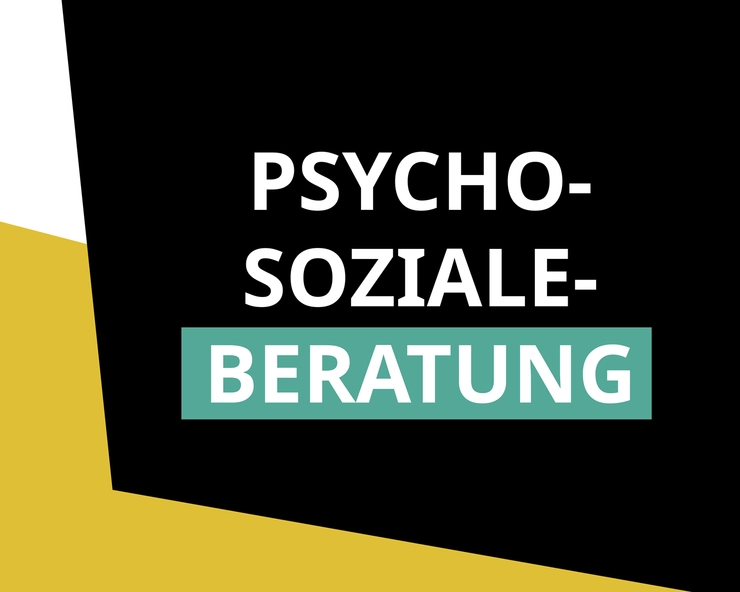
Psychosocial counselling (PSB) is available free of charge to all students at universities in Thuringia who feel the need to talk to a neutral person about themselves, their situation and their problems and to receive further support.
Those seeking advice can contact us both with study-related problems and in personal conflict situations. Psychosocial counselling is also available in English upon request.
The following pages give you an overview of the most important financing options for studying. For all questions regarding financial support for studies, the Student Financing Department at the Thuringian Student Services Organisation (Thuringian Student Services Organisation (Studierendenwerk)) is the contact (e.g. implementation of BAföG as the Office for Educational Support). The Studierendenwerk also supports students in financial emergencies.
Advice from the Studierendenwerk on the subject of student finance
The Student Housing Department will be happy to help you find the right accommodation for you. The Thuringian Student Services Organisation (Studierendenwerk) manages a total of 64 residential homes with approximately 7400 places. On the following pages you will find important information about our residential homes and how to apply for a place.
In our information centres you can get the following information and services about studying:
- the International Student Identity Card (ISIC)
- Information on exemption/refund of semester contributions
- Information on exemption/refund of the semester ticket fee
- BAföG applications: Issuing and acceptance for forwarding to the Student Financing Department (no counselling!)
- the child ID card for free lunch for students' children
- Advice on flexible childcare as well as registration, acceptance of childcare contracts and booking of childcare times in Jena, Erfurt and Weimar
- Information material from the Studierendenwerk, the universities and universities of applied sciences, as well as information on opening hours of facilities of the Studierendenwerk, the universities, universities of applied sciences and the cities
- Publication of private room offers on the Internet
- Publication of job offers for students on the internet
- Admission tickets to events organised by the Studierendenwerk and the universities and colleges
As part of the "MigraNetz Thüringen" initiative, the project "AntiRaktiv" project, the "MigraNetz Thüringen" initiative regularly offers multilingual, community-based counselling for people affected by racism at the University of Erfurt. This takes place every fortnight during the lecture period on Thursdays from 3 to 5 p.m. in the Centre for Communication and Information (KIZ), room 0.09, and is open to all students and employees of the University of Erfurt.
You can find the dates in the calendar of events on our website.
Contact MigraNetz:
E-mail: antiraktiv@migranetz-thueringen.org
Phone: 03643 87777 46
Student advice and counselling
by telephone: Monday to Friday 9-11:30 a.m.
Academic Affairs
by telephone: Monday to Friday 9-11:30

